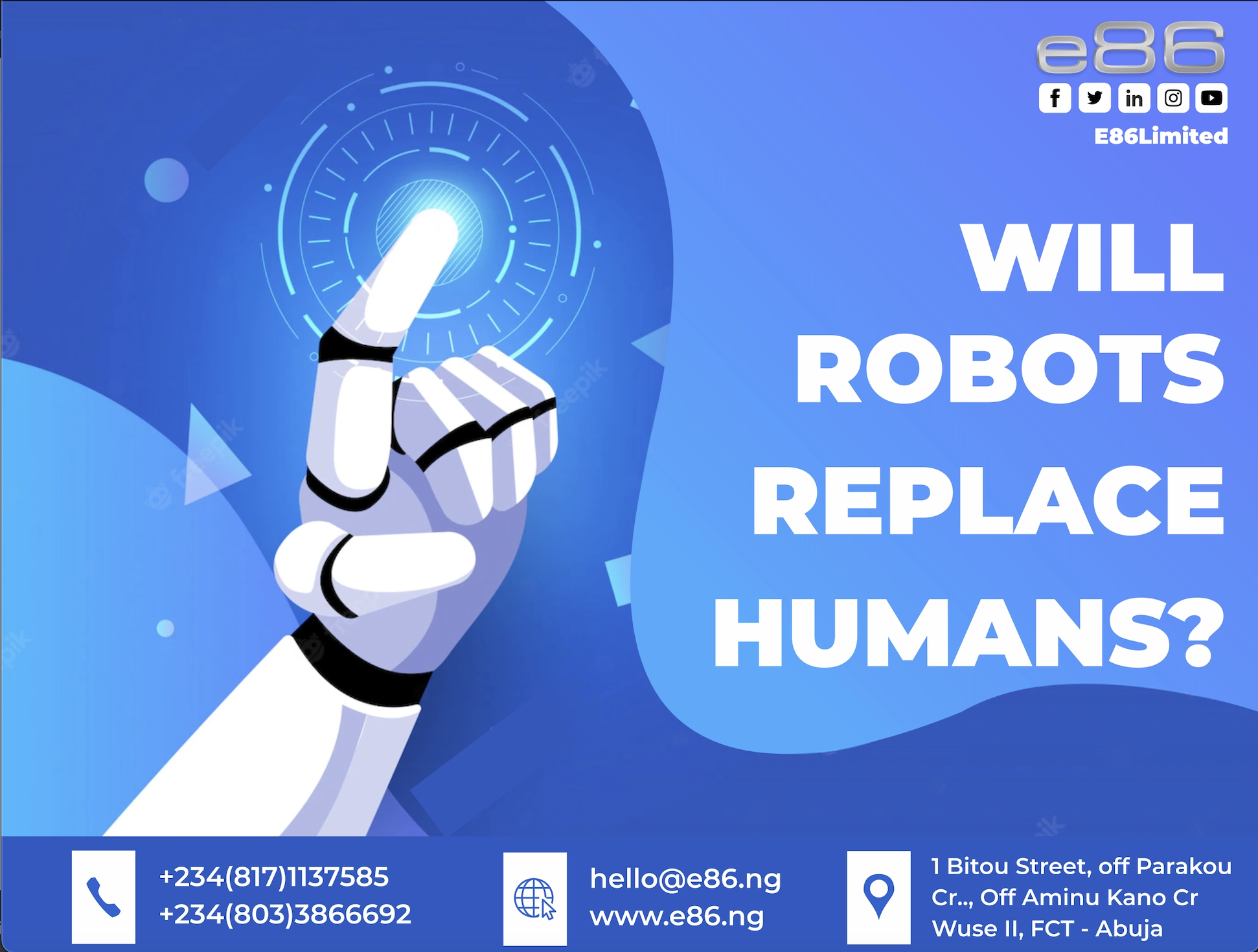When Will Robots Replace Human Beings?
November 3, 2022 2024-01-04 2:53When Will Robots Replace Human Beings?
Do you know of any Hong Kong companies that have appointed computer algorithms to their boards of directors? Do you believe that AI will eventually run large corporations, let alone take on other roles? Indeed, the phrase “artificial intelligence” has captured people’s attention and imagination in recent years. Some people are vociferously warning that AI will displace workers everywhere. Others are certain that machines will successfully coexist with people but not take their place.
I will highlight a couple of reasons why we believe robots cannot replace humans.
LET’S DIVE IN!!!
1. AI cannot think outside the box and their code
As a result of their coding, AI nowadays is unable to come up with original solutions to a variety of new issues. Robots are programmed to operate within the confines of their design. Though this won’t happen anytime soon in the real world, it’s possible that one day a machine may be able to think for itself. Artificial intelligence is incapable of assessing context, engaging in critical thought through challenging situations, or creating intricate plans of action. The continual interaction between teams of humans, organizations, and the outside world is common. AI, however, can only process data that has been input into its system. It cannot assess the influence of other factors, unlike humans. When working in corporate environments, it is necessary to be flexible in order to distill a vision and plan while coping with rapid shifts and skewed information interchange. Human intuition, a crucial component of daily work, especially for CEOs at the highest levels, fuels this skill.
2. AI-based machines don’t have emotional intellect.
We should be proud of our emotional intelligence. We have the ability to immediately read individuals and convey and display our emotions. Let’s use customer service as an illustration. AI can’t take the place of all customer service in a business. People prefer interpersonal contact since machines are unable to understand their clients’ needs. Thus, firms risk losing clients if there is no personal interaction.
Have you heard that interpersonal and interpersonal communication abilities are increasingly more crucial for jobs than technical skills?
Systems using artificial intelligence operate quickly, logically, and accurately. They lack intuition, empathy, and cultural awareness. And it is precisely these skills that are unique to humans and give us our power.
Only a human can read a face and instantly know the right thing to say. Because of this, for customer support services, it is better to hire virtual assistants.
NOTE
The use of artificial intelligence applications in the workplace is growing, and many current positions will be replaced by them. The jobs it requires, nevertheless, are only routine jobs that don’t require complex reasoning. As the world transitions to a more connected ICT ecosystem, new positions for people will also be created by changing workplace requirements.
According to a survey by the World Economic Forum, while machines using AI will displace roughly 85 million jobs in 2025, the technology will also create nearly 97 million new jobs in that year. So, the crucial query is: How can we collaborate with AI rather than having it replace us? We should concentrate on that.
In this age, it will be difficult, if not impossible, to live without AI, and without humans, there would be no artificial intelligence. Forward-thinking organizations are already developing ways to incorporate human capabilities and AI to attain higher levels of productivity and innovation.
Conclusion
The human-like intelligence described in popular science fiction is still very distant from what the world’s AI technology can accomplish.
Despite all the hype, the majority of artificial intelligence (AI) machines are built to be exceptionally good at tackling a specific problem in the setting of a certain data system. On the other side, human ingenuity, insight, and contextual awareness are crucial to the success of AI. The simple explanation for this is that humans will always be able to provide value that machines cannot.
At e86, we are equipping folks to be valuable, understand the digital economy, and solve complex problems.
Anticipate our monthly podcast, “Thriving in a Digital Economy,” which will be released on the 21st of November)
Registrations are open for the FREE DiGiT training. https://e86.ng/free-training-registration/
Please recommend an Abuja resident to leverage this opportunity.


